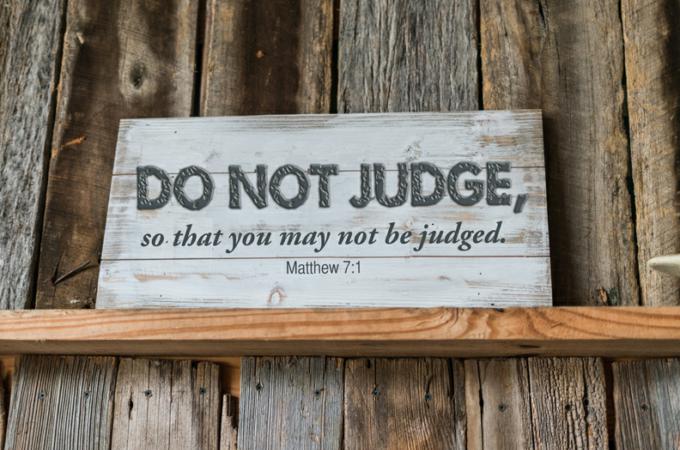What kind of Catholic?
There are all kinds of Catholics: cradle Catholics, Catholic converts, cultural Catholics, ex-Catholics, devout Catholics, uncatechized Catholics, cafeteria Catholics, Catholics in good standing, Novus Ordo, Tridentine, and C and E (Christmas and Easter) Catholics -- you get the picture. But I'd venture to guess that there are people in every one of those categories who are struggling -- or have struggled -- with some aspect of Catholic dogma, doctrine, or practice. Why? Because we each have our own way of seeing things, and those aren't always perfectly aligned with the authentic magisterial teaching of the Church.
Of course, there's always a chance that what we think is Church teaching really isn't. The depth of our faith can be a bit challenging to understand. And too, no matter what era we live in, the Gospel of Jesus Christ is likely to be countercultural. Christianity doesn't exactly blend in with its surroundings. But even when we do understand what the Church teaches, the truths of our faith are not just consoling, they are challenging. And sometimes, they're as difficult to accept or embrace as they are to live.
Which teachings am I talking about? All of them. Some of us struggle with belief in the Real Presence of Christ in Holy Eucharist, others with limiting ordained ministry to men. Still others find it difficult to accept what the Church teaches about marriage and divorce. And then there is the whole range of issues surrounding human life: artificial contraception, abortion, racism, exploitation, poverty, assisted suicide, and the death penalty, among them.
People on every imaginable side of those teachings call themselves Catholics. They may not fully agree with what the Church teaches; they may even dissent. But they insist their faith means something to them. We know that God is big enough to handle our questions and doubts. But if faith really means something to us, we have to engage it, not only when we agree but especially when we don't. The problem is that some self-identified Catholics don't bother to struggle through what the Church has to say; they simply disregard it.
I suppose I could start listing politicians who publicly flout the values of the faith they claim to hold dear, but I won't. We would all do well to remember Jesus' words, "Do not judge, so that you may not be judged" (Mt. 7:1). Instead, I'll take a look at whether or not I am honestly engaging the teachings that challenge how I see things. Do I disregard what I find difficult to accept? Am I quick to label the teachings I disagree with as less important or essential to the faith?
A docile and teachable spirit: that's what we all need when it comes to the truths of our faith, and that's what too few of us have managed to cultivate. Mostly, it's a pride problem. It takes a good bit of arrogance for someone to think that they know better or see things clearer than all the Christians who have gone before them for over 2,000 years. But hubris isn't in scarce supply. It's also a prayer problem, as a lot of us spend nowhere near enough time asking God to form our hearts in his truth.
The fact is that I am not the pope and, unless your given name is Jorge Bergoglio, neither are you. I don't know about you, but that gives me a sense of relief. The 266 men who have occupied the Chair of Peter have mostly done so in fear and trembling. Protecting and preserving the faith of the Apostles is no small task. Neither is fostering unity of faith in the Church.
What kind of Catholic are you and I? The kind we choose to be by how we engage the teachings of the Church that challenge us most. There's no need to judge each other. We have a God who will do that for each one of us with both justice and mercy. And we all have mirrors.
- Jaymie Stuart Wolfe is a Catholic convert, wife, and mother of eight. Inspired by the spirituality of St. Francis de Sales, she is an author, speaker, and musician, and serves as a senior editor at Ave Maria Press. Find Jaymie on Facebook or follow her on Twitter @YouFeedThem.



















